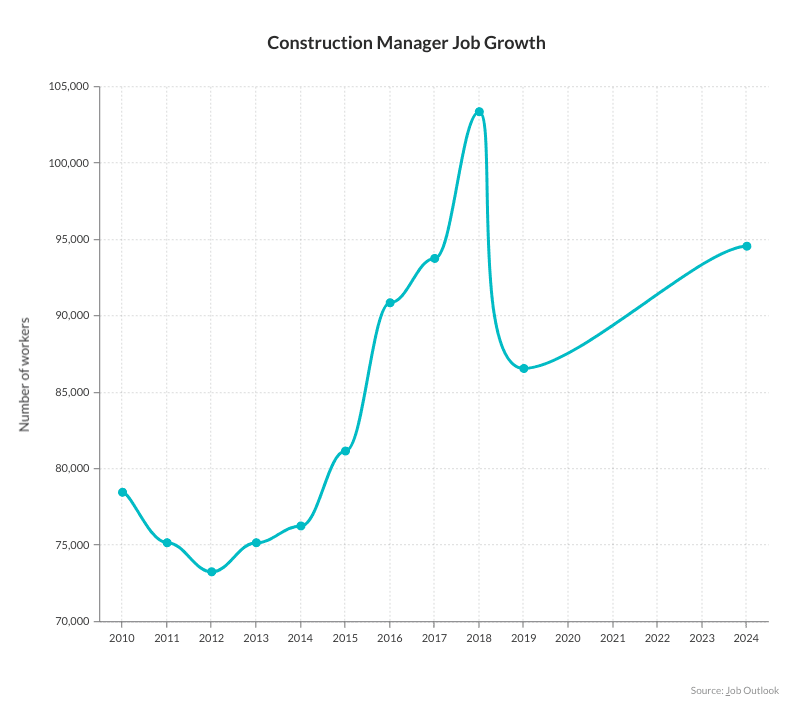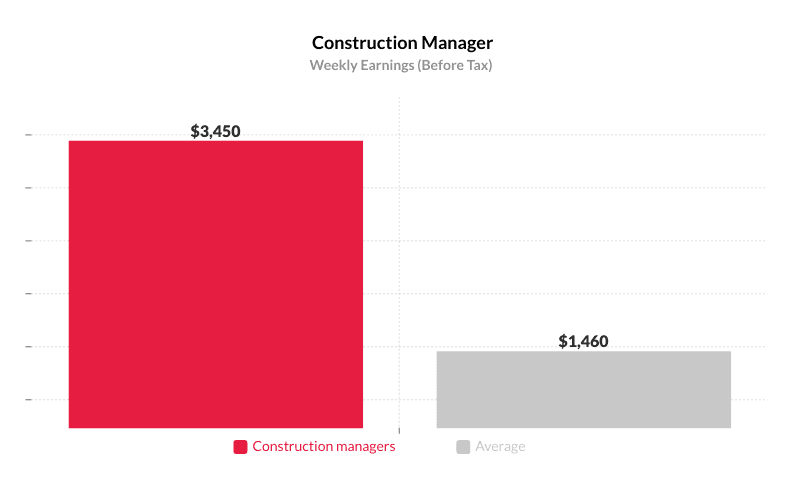How to Become a Construction Manager: A Rewarding Career

If the daily grind is wearing you down, you might want to consider a career path with more responsibilities and rewards. Working as a construction manager might do the trick – here’s how to pave your way down this career path.
What does a construction manager do?
Construction managers plan, organise and control the construction of civil engineering projects. Your responsibilities might include:
Overall, your objective as a construction manager is to keep projects on track, ensuring they are completed on time and on budget while meeting codes, plans and specifications.
What sort of person would make for a great construction manager?
Construction management comes with a great deal of responsibility. If you want to be a standout construction manager, you should have an enterprising personality. You should feel confident in leading a team, have great communication skills, and be able to resolve any disputes that come up among workers or stakeholders. You’ll also need to resolve complex problems each and every day, and should therefore have a practical mindset.
In order to meet deadlines, you might find yourself having to work overtime, so it’s important to be truly passionate about your career field. Construction managers work an average of 48 hours a week, which is higher than the general full-time load of 40 hours.
What areas can construction managers work in?
With a background as a construction manager, you can also work as a builder, foreman or site supervisor.
Australia’s booming construction industry also means you’ll likely find opportunities throughout the country. From suburban developments to inner-city highrises, construction management will see you working across a variety of different sites.
What does the future of construction management look like?
By 2024, the number of construction managers is expected to grow from 86,600 to 94,600 (Job Outlook). This is a great figure for jobseekers, indicating that demand will continue to grow as Australian cities and towns boom.

Do construction managers make good money?
Construction management is one of the most lucrative blue-collar jobs out there. The average construction manager salary is around $120,000 according to Talent, but can snowball all the way up to $200,000 depending on your area and experience.
Broken down into a weekly basis, full-time construction managers earn around $3,450 per week, which is much higher than the national average of $1,460 (Job Outlook).
Of course, it’ll take some time to work your way up to these figures as you learn the ropes and gain experience.

How do I get started in construction management?
Working in construction management requires a good knowledge of the building and construction industry. A background in engineering and tech also wouldn’t hurt.
Most construction managers start off in another construction position, such as general contractors or labourers, before working their way up to the leadership position.
Some skills that will help you get far as a construction manager include critical thinking, coordination and problem-spotting. These days, many construction projects take a Waterfall or Agile approach, so it’s a good idea to be on top of this methodology as well.
What qualifications do you need to be a construction manager?
In addition to having a White Card, construction managers also need a formal education relating to building and construction. Some courses to consider include:
Some people may even wish to pursue a degree to become more employable.
How long does it take to become a construction manager?
Due to the high level of responsibility in this role, some formal qualifications are needed. Most construction managers start out in an entry-level position, working their way up the ladder before reaching the top-dog position. The average age of construction managers in Australia is 44, indicating that these people have quite a few years of experience under their belts.
Got your sights set on something bigger?
A career in construction management could be what you’re after.


